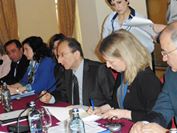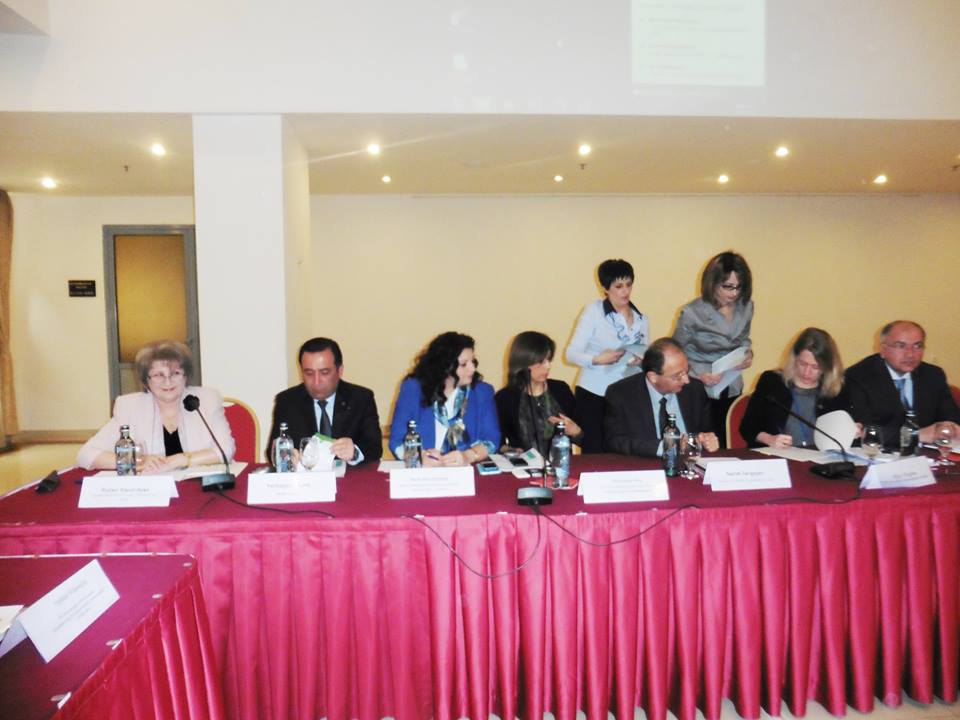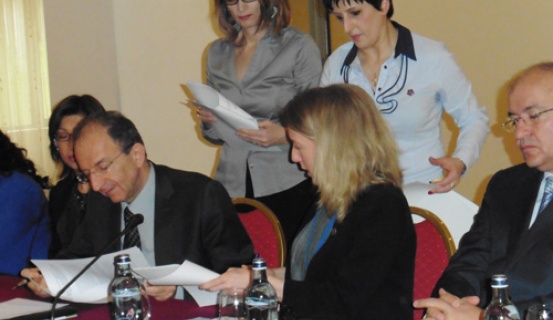10
Apr
The Republic of Armenia is well committed to improve its housing conditions and urban development strategies and planning policies. The country is actively working towards the preparation of the UN Conference on Housing and Sustainable Urban Development – HABITAT III, which will take place in 2016 and is expected to adopt the New Global Urban Agenda. Armenia has already completed and submitted to the HABITAT III secretariat its national report on housing and urban development and is engaged in multiple projects on urban planning and energy efficient housing.
The Government of Armenia also requested the UNECE in 2013 to conduct its second Country Profile on Housing and Land Management and, based on the recommendations to be formulated in the sturdy, to prepare a National action plan on sustainable housing and urban development. In October 2014, the Government of Armenia also joined the UNECE led “United Smart Cities” project and selected the town of Goris as a pilot.
To support the efforts of the Government of Armenia, on 9 April 2015 the UNECE Executive Secretary Christian Friis Bach signed two Memorandums of Understanding with the Ministry of Urban Development of Armenia, UNDP office in Armenia. The document provides framework for cooperation between the parties above in the preparation of the Country Profile on Housing and Land Management for the Republic of Armenia and for the development of a pilot smart city profile and the Action Plan for the town of Goris. Municipality of Goris, and Regional Environmental Center for Caucasus (REC Caucasus) Armenia National office are included as a parties of MOU on Smart City. In line with the agreements, UNECE and UNDP Armenia will support the government in conducting the analysis of the housing and urban development situation and developing specific policy recommendations and action plans at both country and municipal levels.
The signing of the memorandums was followed by two workshops and a research mission of UNECE experts for the development of the Country Profile on Housing and Land Management of Armenia conducted on 9-11th April in Yerevan and Goris, Armenia. Workshops and follow-up research missions were co-organized and funded by UNECE, Asian Development Bank, Ministry of Urban Development, Municipality of Goris, REC Caucasus Armenia National Office, the Organisation for Economic Cooperation and Development (OEDC), UN-Habitat.
In his speech on the occasion of the signing of the memorandums of understanding the Minister of Urban Development of Republic of Armenia Mr. Mr. Narek Sargsyan stressed: “The mission of urban development is creation of a human habitat that is favourable, safe, and enabled with high aesthetic features, including all the multifunctional and sophisticated processes of urban development. International organizations, national and local self-government, private sector and civil society should join their efforts for reaching that goal.”
Coherent actions of the government and international partner organizations, efficiently facilitated by the UNECE, will be an essential stimulus for implementation of the national goals of sustainable urban development prioritized by the Republic of Armenia, which in its turn will be a contribution in the global action towards the implementation of the New Global
Urban Agenda. This exercise also showed how coordination and the commitment of the Government can allow the United Nation system and other relevant organizations in the region to deliver as one.
Note for the editors
The Country Profiles on Housing and Land Management are a flagship activity of the UNECE Committee on Housing and Land Management. These studies provide tools for governments to analyse and assess their policies and strategies on housing, urban development and land management, as well as the institutional and financial frameworks for these sectors.
The UNECE “United Smart Cities” project is conducted in cooperation with the Organization for International Economic Cooperation (OiER), Environmental Agency Austria (EAA), UN-Habitat, the International Society of City and Regional Planners (ISOCARP), and many other organisations. This project aims to help cities in transition and developing countries to promote their sustainable growth while focusing on a more transparent and efficient use of their natural and human resources. Participation in this project allows cities to gain an easier access to new technologies and will support them in improving the quality of life of their inhabitants.
Photos





















